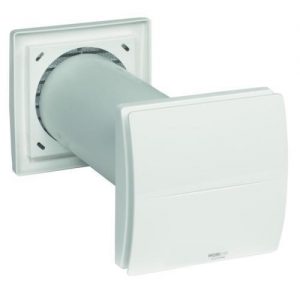Condensation is something which can affect homes of all sizes across Sheffield. It’s a common problem, and one that is mainly a minor nuisance. However, sometimes, condensation Sheffield and elsewhere can develop into a problem which can affect both your home and your health. Reducing these droplets and damp build-ups is going to take more than just a little bit of a wipe down every now and again. However, there is no need to panic – as it is easy to remedy and control!
Here’s a quick guide on what to expect from condensation control in your home, and why it matters.
Before you start trying to tackle condensation, you need to understand what it can do. While it may seem like the odd build-up of moisture in your home is normal, continued condensation and damp conditions could lead to the growth of mould. This, as you can imagine, could lead to unsightly-looking areas which, when left to fester, can be a nuisance to remove. The earlier you address and remedy condensation, the better.
Damp conditions aren’t just unsightly and a pain to get rid of. If left to build, they may cause health problems. However, it is perfectly simple to control and curb condensation before things ever get this far.
Before you call in the experts to help handle condensation Sheffield and elsewhere, you need to make sure that you know what to look for in condensation and household damp. As mentioned, this doesn’t necessarily mean a quick wipe or two here and there, but it will mean keeping your eye out for the various factors and problems which might develop.

When it comes to condensation, the best thing you can do right away is to prevent it from occurring. The phrase that prevention is better than the cure really does make sense in this scenario.
Right away, you should be conscious of how humid your home is. A humid property is going to be a hive for condensation, meaning that you should be careful to regularly ventilate your home. Think about keeping windows open at times and using extractor fans. Try and close doors to humid rooms such as bathrooms, for example, to help control the humidity levels from space to space.
You might even think about using a positive input ventilation system, or PIV, to ensure that fresh air regularly circulates through your home. It’s a good way to ensure you never have to worry about damp conditions and condensation, and it certainly pays for itself in a very quick space of time.
Of course, condensation Sheffield and elsewhere is likely to spike if your home is too warm. Condensation likely happens in winter as the weather is cold outside and our homes are extra humid and hot. Therefore, make sure to crank the heating down, when you can, or to rethink your insulation strategy.
Don’t worry! As stated, prevention is key. However, even once condensation, damp and mould start to appear in your home, there are plenty of quick and practical ways in which you can monitor and address the situation. It pays to act quickly, but there’s no need to panic.
One of the best ways, of course, is to consider setting up an inspection with a ventilation expert. The team at LABS, for example, will make sure that you benefit from the best tools and the best course of action to ensure that your home is happy and healthy for the months and years to come. Condensation is an issue that many people don’t take seriously enough! Therefore, do be sure to take a look at our advice and to take it into account – as if you let condensation Sheffield homes suffer from fester, it could make things much more difficult for you.
LABS is here to help homes across Sheffield fight back against home damp issues. Condensation may seem like a common problem, and it really shouldn’t cause much concern. However, it makes sense to keep an eye out for the right – or wrong – signs!
If you’re worrying about condensation and damp, there’s really no need to. Make sure to take down the number of a local specialist. LABS is here to help protect you against condensation Sheffield and elsewhere. Call us now on 0114 230 2865 for an appointment as soon as possible, and let us keep the rooms in your home damp-free for years to come.
Unfortunately, most homes are likely to fall prey to condensation at some point or another. Condensation occurs when water vapour is created, and when it builds up and saturates. You may be causing condensation through boiling kettles, or even simply hanging a few clothes out to dry. It is important to understand how to stop condensation, simply because if left untreated, it can lead to mould growth, which can lead to breathing problems.
For that reason, LABS is always here to help you find new ways to stop condensation. Here are a few tips you can use, as well as some devices and ideas which will help to cut down the moistening of your interior walls.

 When learning how to stop condensation, you must first understand that without proper ventilation, water vapour is simply going nowhere fast. It is going to build up on walls and windows, and it could produce mould or growths that could pose health risks.
When learning how to stop condensation, you must first understand that without proper ventilation, water vapour is simply going nowhere fast. It is going to build up on walls and windows, and it could produce mould or growths that could pose health risks.
To ventilate properly, you could use extractor fan units, or you could simply choose to open a window or two more regularly during the day! Opening windows, sadly, isn’t going to cut down on the problem completely. This is especially the case when it comes to heavy condensation, or serious mould growth.
Believe it or not, condensation build up can occur as a result of problems in your building’s overall structure. This can occur in older homes where there is no efficient moisture control system in place. Modern homes shouldn’t really suffer in this regard. However, it makes sense to have your property fully inspected wherever possible.
You can look online for tell-tale signs of poor moisture control, however, it is likely going to be quicker and easier for you to ask for help from an expert who can look at a clean course of action to take. You should never try to adjust or fix structural problems in your home on your own.
DPC is a standard which we always recommend when it comes to fighting back against moisture and condensation. Homes built with a solid DPC in place will be better protected against moisture build-up. This means you have a frontline of defence, at least, should mould start wanting to creep up the walls.
Poor DPC systems or homes without moisture control are those which tend to date back decades, even centuries. It is a modern standard in most contemporary homes and new builds. Therefore, if your property is fairly new, you shouldn’t have much to worry about. However, it always pays to check just in case!
We understand that it can be hard to live without constant heat during the colder, wetter months. However, intense heat on a constant basis is always going to breed moisture, and therefore condensation. If you have any hope of learning how to stop condensation in your home, you are going to need to focus on finding heat in different ways. Can you work with a lower heat for a while? What about making sure your home is completely insulated?
There is no harm in making the most of your central heating. However, when left to power on at its top setting all day and all week, you may well start to see signs of condensation and mould. Try not to dry your clothes on radiators all week – hang them up in plenty of advance in cool, dry areas and they will be ready for you to iron in a day or two. That is, of course, if you can’t get your garment outside for wind drying.
One of our preferred options for reducing condensation here at LABS is a humidistat. This technology will accurately measure the humidity in your home, and will let you know when moisture levels are getting too high. It works in a similar fashion to a thermostat, in that it analyses the atmosphere and lets you know what you can expect.
You should ventilate your home if your humidistat advises that levels are particularly high. Therefore, make sure to install such a system as standard as soon as physically possible.
Want to know more about how to stop condensation in your home? Are you in need of damp-proofing for your basement or elsewhere? Come and have a quick chat with our team. Call us directly on 0114 230 2865 for friendly advice and guidance, or do email us via form if you’d like to know more about what LABS can do for you.